|
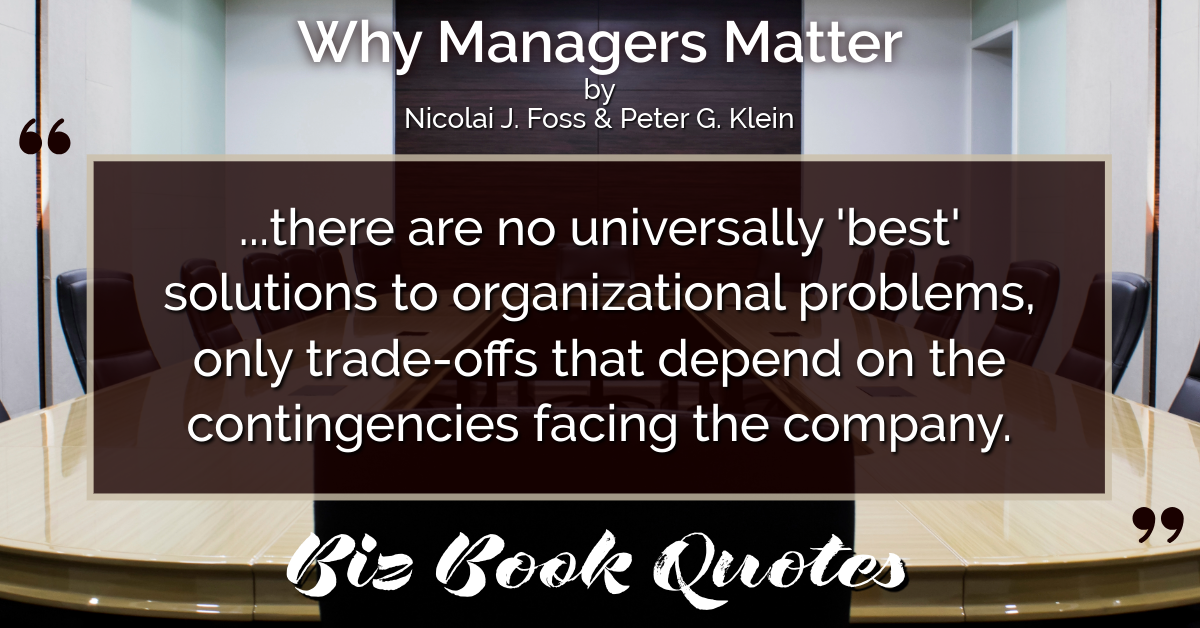
|
Why Managers Matter:
…there are no universally ‘best’ solutions to organizational problems, only trade-offs that depend on the contingencies facing the company.
|
237 |
|
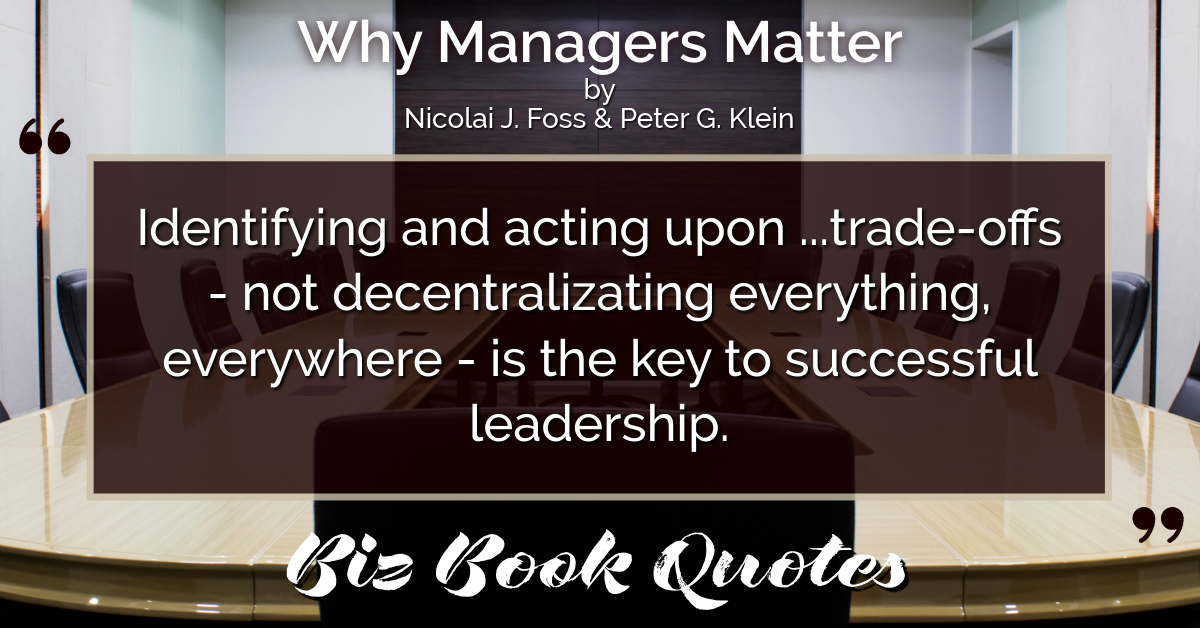
|
Why Managers Matter:
Identifying and acting upon …trade-offs – not decentralizating everything, everywhere – is the key to successful leadership.
|
237 |
|

|
Why Managers Matter:
Most workers don’t want or need a manager telling them what to do and when to do it. But managers have to design the system in which empowered, autonomous, educated knowledge workers can flourish.
|
245 |
|
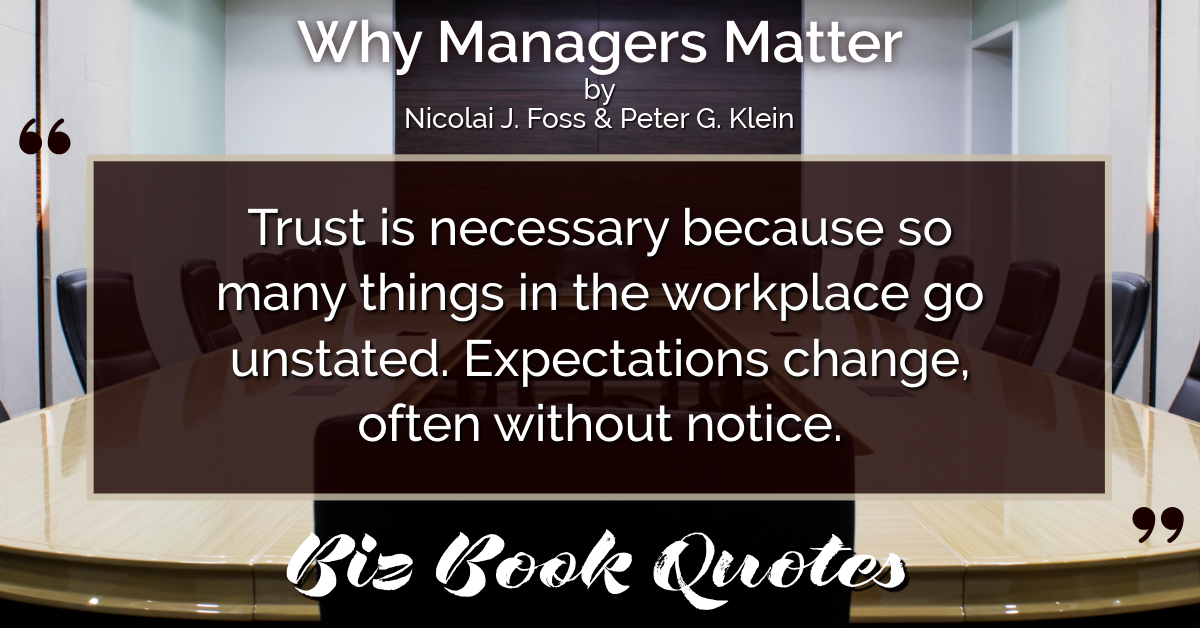
|
Why Managers Matter:
Trust is necessary because so many things in the workplace go unstated. Expectations change, often without notice.
|
253 |
|
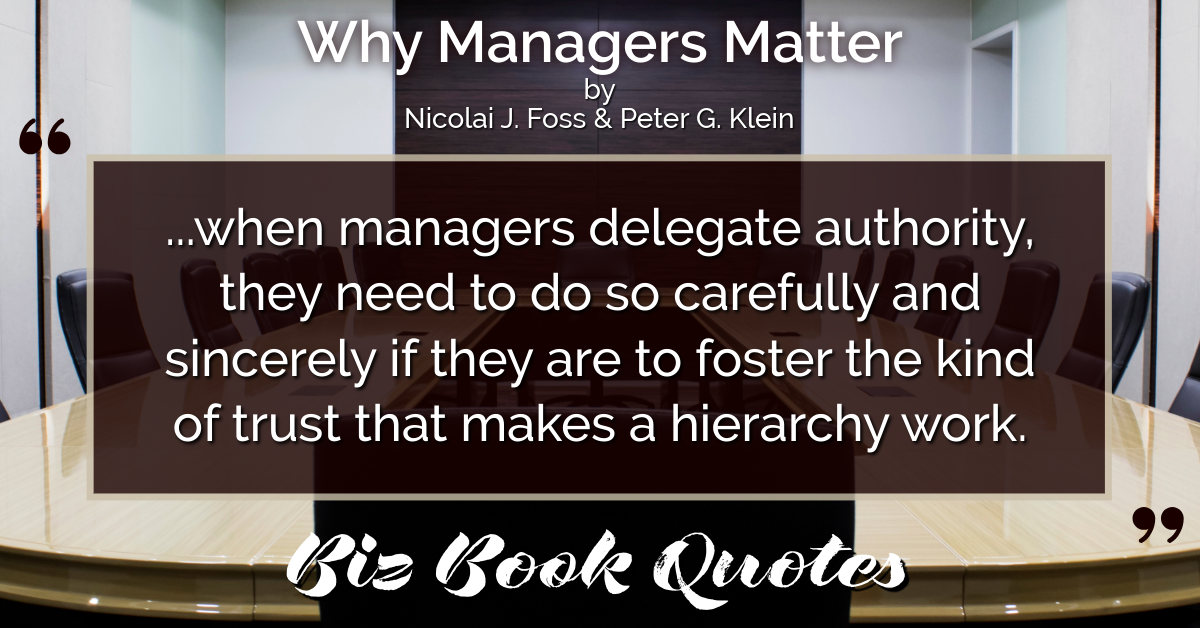
|
Why Managers Matter:
…when managers delegate authority, they need to do so carefully and sincerely if they are to foster the kind of trust that makes a hierarchy work.
|
255 |
|

|
Why Managers Matter:
Building and maintaining good psychological contracts is all about sustaining good relations.
|
257 |
|
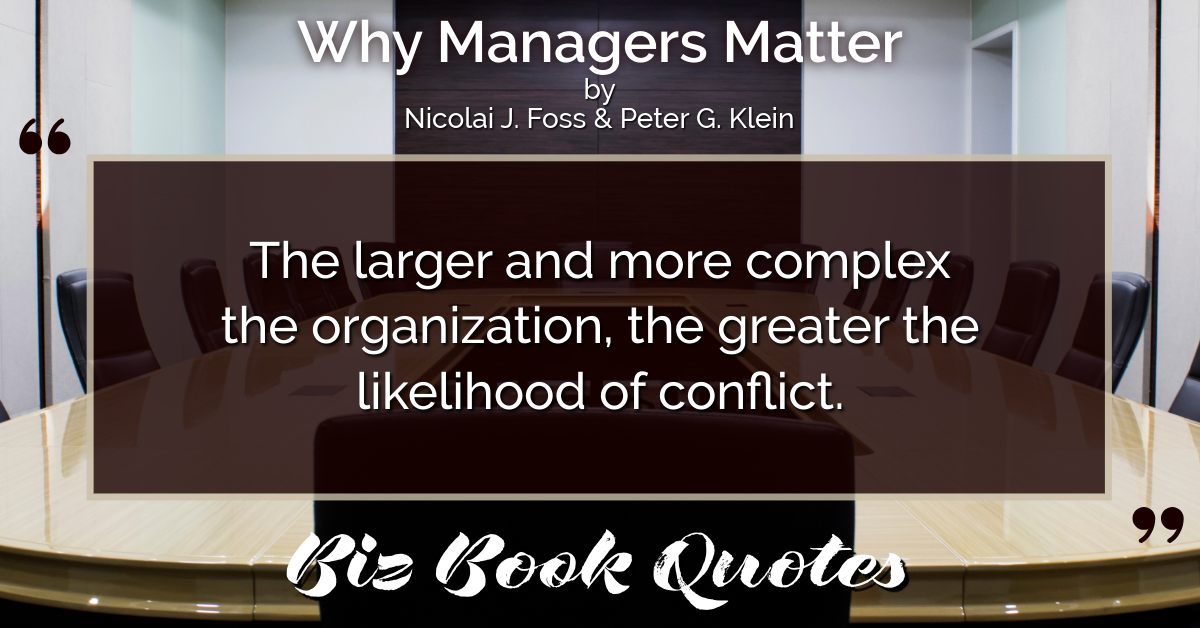
|
Why Managers Matter:
The larger and more complex the organization, the greater the likelihood of conflict.
|
258 |
|

|
Why Managers Matter:
Finding just the right level of transparency between units is a key management challenge.
|
259 |
|

|
Why Managers Matter:
Incentive schemes and delegation go together; neither works without the other.
|
260 |
|

|
Why Managers Matter:
…if the costs of delay are high enough, then quick decisions are often worth the risk.
|
261 |











